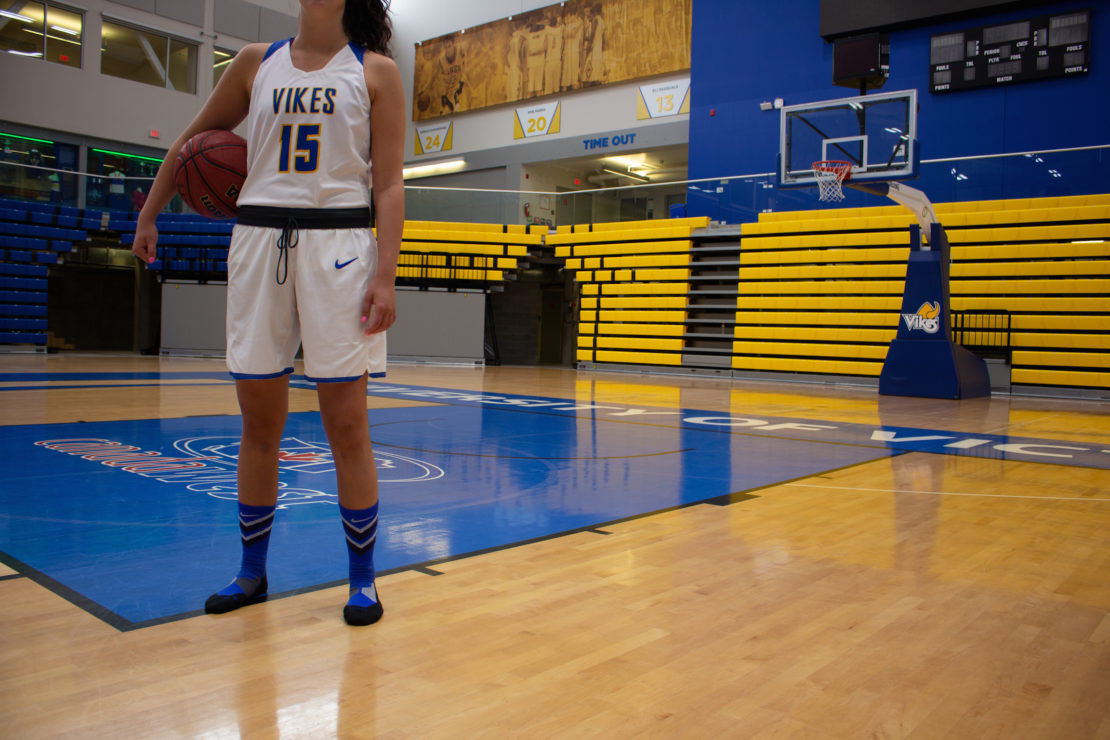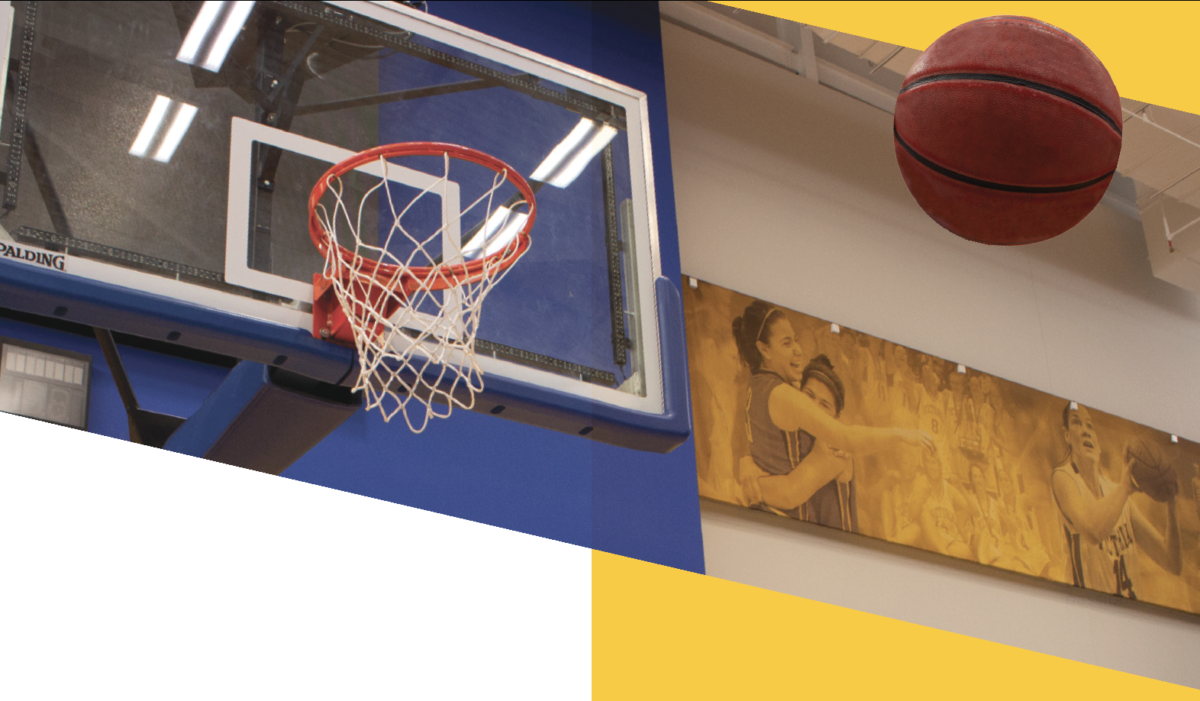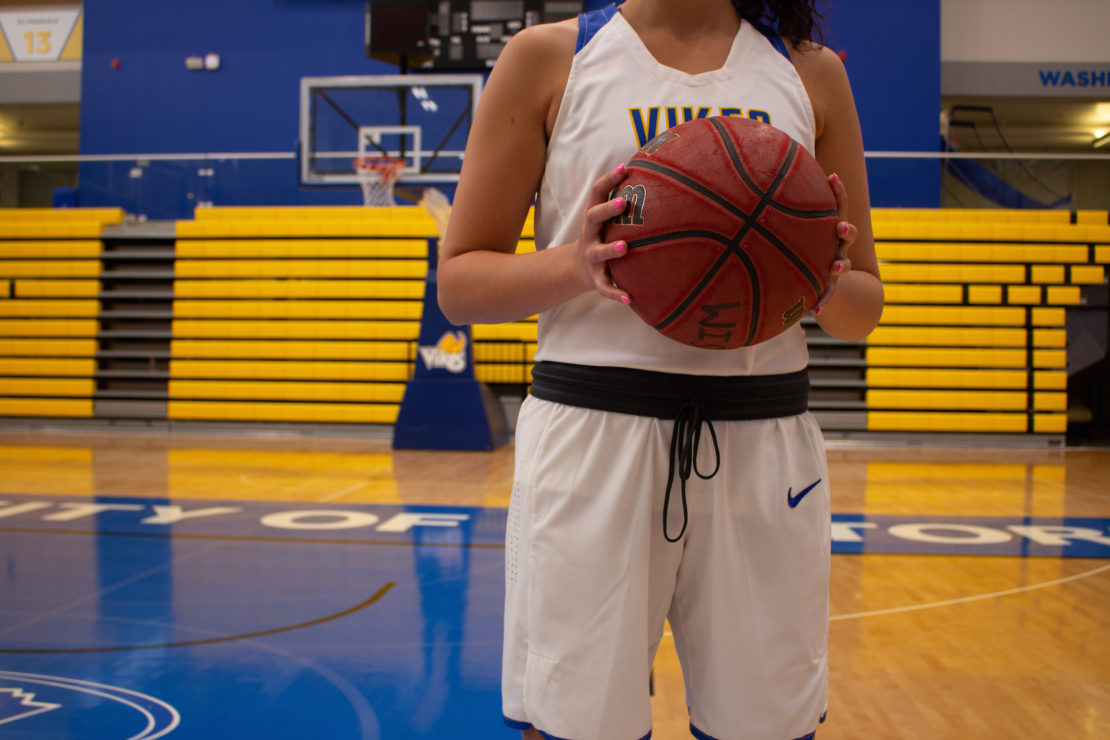
Content warning: the following contains descriptions of sexual assault and the mention of suicide that may be disturbing to some readers.
Electronic rap and countless side conversations pulsated throughout the club when Paige Thomson took a sip of her drink, and her world faded to darkness.
Her friends vanished, the bartender disappeared, and the club music ended. When she opened her eyes, Paige was no longer at the bar with her friends, but in a hotel room across town with two men.
It was just before midnight, in August of 2017, when Paige and a group of friends ducked into the Sticky Wicket pub in downtown Victoria for the evening. Paige made her way towards the bar for a drink — she knows her limits when it comes to alcohol, and wasn’t drunk by any means — when a stranger approached her.
The man started to become aggressive. He pulled, tugged, and grabbed at Paige, trying everything to pry her away from the bar.
After repeatedly telling him she wasn’t interested, the man continued to grab and grope her when another man approached. This new man stepped between Paige and her abuser, and steered her away from any further confrontation.
Separated from the ruthless stranger, the new man offered to buy Paige a drink. A friend of his was also at the bar, and he immediately leaped into conversation with Paige — distracting her from what his friend was mixing into her drink behind her back.
The second man, who five minutes ago helped distance her from the aggressive man, turned to hand Paige the drink. She took a sip and the club disappeared. She woke up in a hotel room alone, with both men staring her down.
They raped her. Paige left the next morning confused, lost, and in shock.
She didn’t know what to do, didn’t know who to talk with, and didn’t ask for help. She was ashamed and embarrassed, believing everything that happened that night was her fault.
It was the night the nightmares began.

Growing up in Brandon, Manitoba, Paige was a two-sport athletic star in both volleyball and basketball. She played volleyball with her sister, and both her parents played basketball at the university level.
Ultimately, following in her parent’s footsteps, Paige chose to pursue basketball after high school. She decided to attend UVic because of its renowned basketball history — which includes nine national titles and 18 Canada West conference banners — and for Victoria’s favourable year-round climate compared to rural Manitoba.
“It was warm,” Paige says with a laugh. “Compared to Manitoba.”
She admits the jump from high school to university was a huge leap for her, and one magnified by the incredibly busy student-athlete lifestyle. Paige’s weekly schedule, which includes classes towards her degrees in Physical Geography and Visual Arts, revolves around her time on the court and in the gym.
In the preseason, Paige and the team would wake up every morning at six a.m. for an hour workout, either in the weight room or outside on the track. After attending a round of classes during the day, Paige would then prepare for the team’s second practice.
“We would go [for] two hour practices at night,” says Paige. “You would have to be there an hour before if you need to get taped, and then we need to be on the court 15 minutes before that. And then recovery and all that, so it’s like a four-hour block in the afternoon, after classes.”
This wasn’t an injury she was used to. It wasn’t a twisted ankle, busted hip, or sprained shoulder. It couldn’t be fixed with stretching or taping, what Paige needed was time to think and talk.
In those practices — especially when doubled over on a track at six a.m. — Paige and countless other athletes are often told by coaches that this gruelling work will make them tougher. That their hard-work will be rewarded with more playtime in games or a captaincy spot on the team.
With this schedule and a constant pressure to push themselves, it’s no wonder many student athletes struggle with balancing school, academics, and their mental wellbeing. A 2016 British Journal of Sports Medicine study of 465 student athletes at various schools in the National Collegiate Athletic Association (NCAA) found nearly a quarter of the college athletes displayed “clinically relevant depressive symptoms.”
This wasn’t an injury she was used to. It wasn’t a twisted ankle, busted hip, or sprained shoulder. It couldn’t be fixed with stretching or taping, what Paige needed was time to think and talk with someone to reassure herself that what happened that night wasn’t her fault.
Around the same time, at several universities across the United States, prominent athletes started taking their own lives due to extreme stress and depression.

At the University of Pennsylvania in 2015, track star Madison Holleran was just 19 years old when she sprinted off the ninth floor of a parkade. Tyler Hilsinki, quarterback at Washington State, was 20 when he took his own life in 2018, and this January University of Montana football player Andrew Harris was found dead by apparent suicide in his home. He was 22.
Athletes don’t want to appear weak among their teammates for fears of being ‘soft,’ or attract extra attention and favourable treatment from their coaches because of their mental state. Whether it’s on the cross country course, ice hockey rink, or basketball court, it’s an inner battle student athletes with mental health issues face alongside their demons outside of sport.
Paige’s nightmares began after that August night in 2017. In the early morning hours, she would toss and turn across damp bed sheets, with trickles of cold sweat beating down her forehead.
For Paige, the challenging and demanding student-athlete lifestyle allowed her to momentarily push away the memories of what happened to her at the Sticky Wicket that summer. She focused her energy on basketball and university, and tried to push through the mental pain.
But the events from that night still lingered in the back corners of her mind, even though she was in a supportive environment on the basketball court, surrounded by passionate teammates and coaches, and was playing a sport she had loved since childhood. The PTSD (Post-Traumatic Stress Disorder) she developed from being sexually assaulted would not simply go away.
She thought the pain would eventually fade, like it does when she’s lifting weights in the preseason for basketball training. She thought there would be a reward for battling through it. So she put on a fake smile, and carried on like nothing was wrong. But the nightmares continued.
This wasn’t an injury she was used to. It wasn’t a twisted ankle, busted hip, or sprained shoulder. It couldn’t be fixed with stretching or taping, what Paige needed was time to think and talk with someone to reassure herself that what happened that night wasn’t her fault.
“I’ve always been taught that if you’re going through that struggle, that there’s going to be a benefit out of it — so just keep going and it’ll be okay,” says Paige. “Personally, for me, I don’t like asking for help. I like to do it on my own. [It] was a huge thing for me to even go out and talk to one person, let alone trying to find a counsellor.”
It wasn’t until a friend died by suicide back home in Manitoba that Paige knew she needed to find help herself. On Bell Let’s Talk Day this past January, Paige released a lengthy message to her social media accounts detailing what happened and what she learned from that night.
“By speaking out and finding the support of people that care about me the most, I became stronger, even tougher, and learned little by little I would rise above this.”
“I’m at the point that I hope by sharing my story it might help other people who may be holding all those feelings inside and help you know that you are not alone. I hope you find someone that you can talk [to]. I hope you find the help you need and that you can start to see the little light in the dark,” she wrote. “By speaking out and finding the support of people that care about me the most, I became stronger, even tougher, and learned little by little I would rise above this.”
She decided to speak up, find a counsellor, and resolve that she wasn’t going to let those two men define her and who she was. Her story captured the attention of friends, teammates, and coaches, who all admired her bravery.
“The biggest thing that sticks out with Paige is her resilience and perseverance,” says Dani Sinclair, head coach of UVic women’s basketball team. “I think there’s a lot of respect from everyone around her, athletes and coaches, just for her positive attitude… She’s really a good advocate for people struggling with mental health because she is pretty open about it. As she became closer with people on the team, people at the university, she didn’t hide it and I think there’s a lot of respect to being that open when you’re going through something that painful.”
UVic Assistant coach Shaile Dheensaw joined Sinclair’s coaching staff only this year, but was immediately in awe of Paige’s leadership and determination.
“She’s has kind of always been the forefront of our program, just because she’s always wanting to be thrust into a leadership spot,” says Dheenshaw. “Because Victoria is such a small city, we’re very built in our community, and the community loves her. Kids love her, [both] high school age [and] middle school age —they all love her.”
Dheensaw cites an example from last season when Paige tore her ACL, but continued to play and refused to tell anyone to avoid tipping off UVic’s opponents.
“She [didn’t make] it public because she didn’t want other teams to know,” says Dheensaw. “I’m sure she’s ok with it now, but she was fully playing on one [ACL] all year long.”
Looking back now, Paige believes being so physically and mentally drained from holding in her feelings inside contributed to this ACL injury.
“Basketball has been my best friend my whole life. After the rape, I didn’t talk to anyone and just tried to push through practice without telling anyone,” she says. “Which lead to me physically becoming tired and so out of my body, I ended up tearing my ACL.”
Even when basketball dealt her another blow on the court, Paige used her rehab as a way to get away from the awful memories that persisted from the night at the bar, and focused on becoming better physically and mentally.

Nearly two years after that summer night in 2017, Paige sits straight up, comfortable and tall, in the lobby of the University of Victoria’s athletic building. Her Starbucks coffee lets out a few puffs of steam as she arches her back and straightens her posture. Looking towards the mass of students walking through the automatic doors, her gaze moves towards the hallway that leads to the windows overlooking the basketball court.
Although she completed her eligibility with the Vikes basketball team in the winter, Paige dreams of working as a director or producer in the film industry — but first, she needs to wrap up a couple courses towards her undergraduate degree in Film Studies next year.
“I’m just coming back for school next year, and then I’m going to go to the Vancouver Film School after that,” Paige says. “And… hopefully get a career in film after,” she says with a small laugh, one mixed with excitement and anticipation.
Paige didn’t tell a lot of people what happened at the start, but she credits the support of her teammates for helping her through her difficult moments and serving as a support group for whom she could always rely on.
She may have been left with both mental and physical scars, but Paige won’t let it define her. She has grown even stronger over the past two years with the help of others, and her own resiliency, perseverance, and strength.
“I felt comfortable enough at that point in myself to tell my story [for myself], rather than for other people,” Paige said, about her decision to share her story in January. “I know that I’ve grown a lot, from last year even … [It’s important] to know that it’s not your fault, what happened, and that you have the support there from others.”
If you or someone you know has experienced sexual assault, they can reach out to the Victoria Sexual Assault Centre. The centre offers 24 hour emergency care services and a safe space for women to receive the help they need and get information about further counselling services, legal procedures, and peer support.







